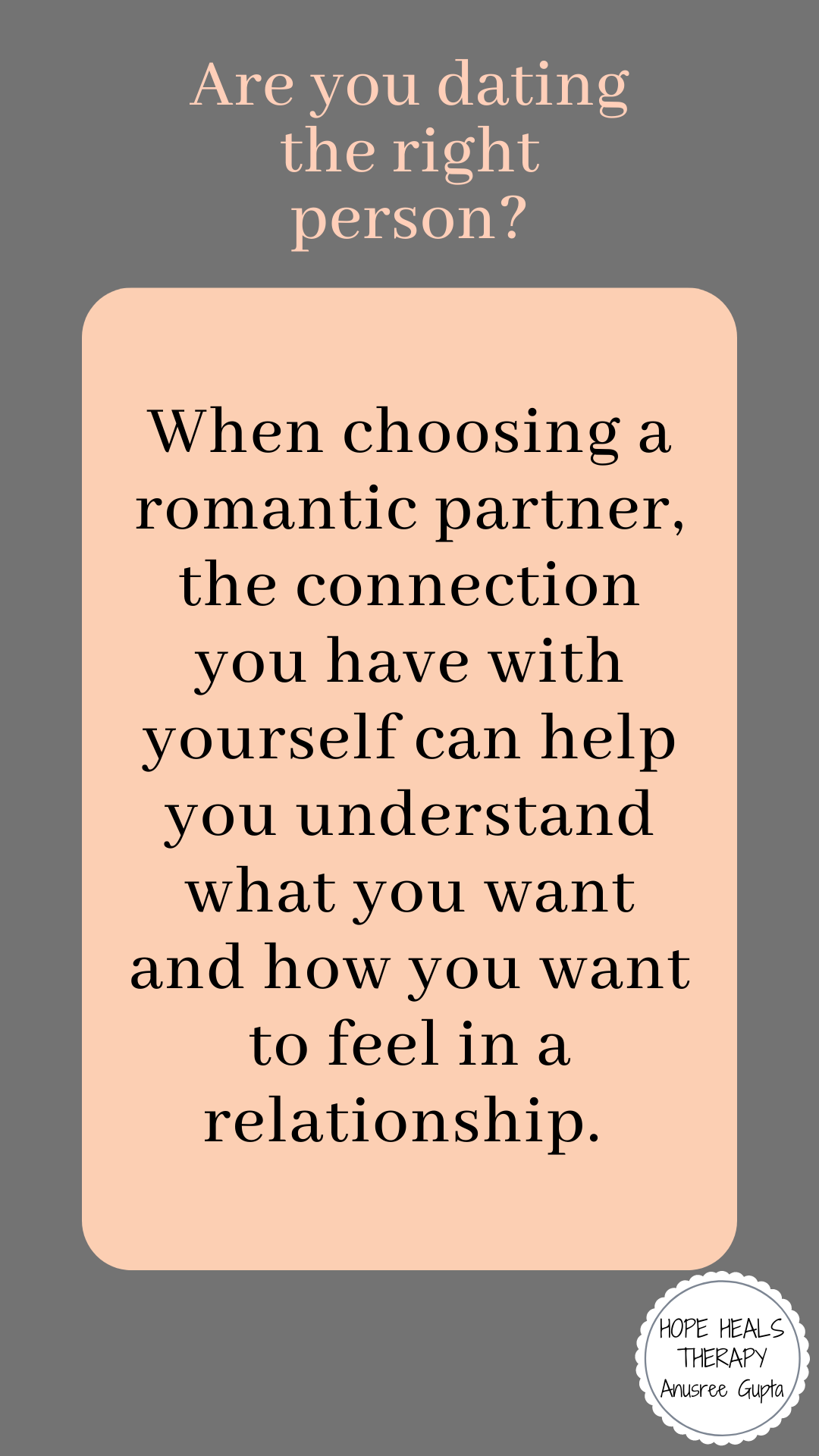Individual Therapy for Relationship Issues | Online Counseling in Texas, Washington & Florida
Individual Therapy for Relationship Issues
Individual therapy for relationship issues is offered online in Texas, Washington and Florida, It is for anyone who is struggling with their current relationship and would like to explore how their own attachment patterns could be playing out in relationship dynamics.
It’s also for anyone experiencing the pain of heartbreak.
Who Is Individual Therapy for Relationships For?
Individual therapy for relationships is for people who:
Feel like they always end up with partners who need too much from them and can never be leaned on for support.
Feel like happy, healthy relationships are for other people but not for them.
Find themselves with partners who withhold affection and are not emotionally attuned.
Notice a pattern of being drawn to the same types of unhealthy relationships again and again.
I have worked with many people who feel frustrated and hopeless, asking themselves why they can’t find someone who is consistent and reliable—someone whose words match their actions, who offers affection, nurturance, and a safe place to belong.
The Role of Attachment Patterns in Relationships
We develop different attachment patterns as children in order to survive in the environment we grow up in. The attachment you had with your caregiver shapes the attachment you later form with romantic partners.
When Attachment Patterns Get Triggered in Relationships
Relationships have the potential to trigger distress. For example:
- When a date goes well but the person never texts back
- When a partner gives you mixed messages
- When you feel dismissed or taken for granted

Your response to these experiences is guided by your attachment history.
If affection in childhood was conditional—dependent on meeting your parents’ expectations—you might find yourself prioritizing a partner’s needs over your own.
If you grew up with inconsistency and unpredictability in affection, you may find yourself anxiously attaching, fearing abandonment, and holding on tightly to partners who trigger those same old wounds.
If your parents were distant or withheld affection, you may have learned that safety meant relying only on yourself. As an adult, you might choose partners who also keep you at arm’s length.
The Push and Pull of Attachment
If you date someone more avoidant than you are, you may become anxious and cling. If someone wants to move closer than you’re ready for, you may withdraw or push them away.
Attachment patterns exist on a spectrum and can shift with life experiences. Developmental trauma and past betrayal create attachment wounds that we carry forward until we intentionally work to heal them.
Relationship Trauma
Even if you began life with secure attachment, relationship trauma—like repeated betrayal or violated boundaries—can move you away from that. These wounds shape how much trust you bring into your relationships and how safe you feel letting others in. Protectors develop to shield you from more pain, but they can also keep you stuck.

Healing Through Therapy
The Connection Between Self and Relationships
When you strengthen your relationship with yourself:
- You can identify how you want to feel in a relationship
- You know your boundaries and what you are willing to accept
- You can choose partners who bring security, not anxiety
Self-awareness also helps you communicate your needs to partners and better understand where your emotions are coming from.
Healing in individual therapy for relationships also includes:
- Repairing wounded attachment patterns
- Working through relationship trauma
- Building self-compassion and self-trust
Through this process, you become more open to your own needs and your partner’s needs, from a grounded place.
Modalities Used in Therapy
My approach is eclectic, weaving together:
- Mindfulness and awareness practices to connect with emotions and body signals
- EMDR therapy to reprocess painful relationship memories and negative beliefs
- IFS (Internal Family Systems) parts work to understand protectors and inner child wounds
If you’re curious, I’ve written more about trauma and how I approach it. You can also read more about EMDR therapy and IFS parts work to get a sense of how these tools support relationship healing.
Ready to Heal Your Relationship Patterns?
You don’t have to stay stuck in painful dynamics. Healing is possible.
Schedule a free consultation for individual therapy for relationship issues in Texas, Washington, and Florida.

FAQ: Individual Therapy for Relationship Issues
How do I know if I need individual therapy for relationships?
Individual therapy can help if you notice repeating patterns with partners, feel anxious or distant in your relationships, or struggle with setting boundaries. It may also be useful if you feel scared to express your needs or confused about what’s a healthy expectation versus what’s not. Therapy can also support you if you feel caught between extremes—like not wanting to seem “needy,” but also not wanting to feel hyper-independent, and struggling to find balance.
In short: If relationships leave you feeling anxious, confused, or stuck in the same patterns, therapy can help you find clarity and confidence.
Why do I feel like I’ll never find the right person?
These feelings make sense when you’ve experienced painful relationships or past wounds. Sometimes the pattern comes from either not filtering who you allow into your life, or from having protective walls that make it hard to let anyone in. Therapy can help you identify what’s maintaining these patterns, so you can shift them.
Working on connecting with yourself—clarifying what you want to feel in a relationship—can give you the confidence to recognize and welcome the right partner into your life.
In short: Therapy can help you understand your patterns, connect with yourself, and feel confident about finding the right person.
How can I get over my ex?
It’s normal to struggle after a breakup. Letting go of a relationship is rarely simple, especially if a part of you fears you’ll never find someone else or worries about ending up alone. Those fears of loneliness can make it even harder to move forward—even when you know the relationship wasn’t right for you.
Therapy gives you a supportive space to process your grief, untangle the fears that keep you stuck, and rebuild trust in yourself. With time, you can begin to release what no longer serves you and feel more open to the kind of connection you truly want.
In short: Moving on takes time, but therapy can help you heal, let go, and feel ready for healthier relationships ahead.
How can therapy for breakup recovery help me?
Breakups can be painful, confusing, and destabilizing—even if you know the relationship wasn’t right for you. Therapy for breakup recovery gives you a safe space to process grief, make sense of what happened, and work through fears like “What if I never find someone else?” or “What if I’ll always be alone?”
In therapy, you can explore patterns from past relationships, rebuild your sense of self-worth, and gain clarity about what you want moving forward. With support, a painful ending can become an opportunity for growth and healing.
In short: Therapy for breakup recovery helps you heal from heartbreak, release fears, and feel more confident about future relationships.
Is couples therapy the same as individual therapy for relationship issues?
Not exactly. Couples therapy focuses on the relationship itself—helping both partners improve communication, understand each other’s needs, and work through conflicts together.
Individual therapy for relationship issues, on the other hand, focuses on you. It’s a space to explore your own patterns, attachment style, cultural influences, boundaries, and past relationship wounds. The goal is to help you gain clarity, heal old hurts, and feel more confident in how you show up in your relationships.
Many people benefit from individual therapy first, so they can better understand themselves and then bring those insights into their current or future partnerships.
In short: Couples therapy works on the relationship as a whole, while individual therapy helps you understand and change your own patterns within relationships.
Some people find it helpful to do both at different times—starting with individual therapy to build self-awareness and then using couples therapy to strengthen their partnership.
Can therapy help if I’m in an inter-cultural or interracial relationship?
Yes. In inter-cultural or interracial relationships, partners often experience the world in very different ways. Individual therapy gives you space to process inner conflicts, explore doubts, and notice protective parts of yourself that may be holding you back from being fully present. Using EMDR and IFS, therapy can help you lift burdens from past experiences, honor cultural differences, and gain the courage to express your needs while holding compassion for your partner.
In short: Therapy can help you honor your cultural experiences, gain clarity, and show up more fully in your relationship.
Can therapy help me with family pressures that affect my relationship?
Yes. Family dynamics and expectations—whether from parents, in-laws, or cultural traditions—often play a powerful role in how we show up in relationships. These pressures can leave you feeling conflicted, unsure of your boundaries, or caught between competing expectations.
Individual therapy offers a safe space to understand your inner conflicts, clarify your needs, and decide which expectations align with your values. It can help you release patterns that are harmful to your well-being or your relationship while building confidence in your own voice.
In short: Therapy can help you navigate family pressures with clarity and confidence, so you can strengthen both your boundaries and your relationships.
Do you offer online therapy for relationship issues?
Yes. I provide online therapy in Texas, Washington, and Florida, helping adults heal relationship trauma and attachment wounds.
Connecting with yourself will help you see what you want. take the first step
